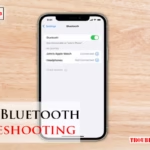Dealing with car issues can be frustrating. The Hyundai Sonata is no exception.
Understanding common problems and how to fix them can save time and money. This blog post will guide you through troubleshooting your Hyundai Sonata. Whether it’s engine problems, electrical issues, or strange noises, knowing what to look for is key.
Owning a reliable car is important, and keeping your Hyundai Sonata running smoothly is essential. By learning some basic troubleshooting tips, you can avoid costly repairs and ensure your car stays in top shape. Let’s explore some common issues and how to address them effectively.

Credit: www.youtube.com
Engine Problems
Engine problems can cause significant issues for Hyundai Sonata owners. These issues often lead to frustration and can affect the vehicle’s performance. Identifying the exact problem is crucial for timely repairs and smooth operation.
Starting Issues
Starting issues are common in Hyundai Sonata models. These issues may arise from a weak battery or a faulty starter motor. Sometimes, a malfunctioning ignition switch can also be the culprit.
If your Sonata struggles to start, check the battery first. Ensure the connections are clean and secure. If the battery is fine, test the starter motor. Replacing a faulty starter can resolve the problem.
Stalling And Power Loss
Stalling and power loss can be alarming for any driver. These problems in a Hyundai Sonata often point to fuel system issues. A clogged fuel filter or a failing fuel pump might be the cause.
Inspect the fuel filter for any blockages. Replace it if necessary. A failing fuel pump needs immediate attention. Regular maintenance can prevent stalling and ensure consistent power delivery.

Credit: jalopnik.com
Transmission Issues
Transmission issues in the Hyundai Sonata can lead to many problems. These can affect your driving experience and vehicle performance. Understanding common transmission issues can help you troubleshoot them effectively.
Gear Shifting Problems
One of the most common transmission issues in the Hyundai Sonata is gear shifting problems. You might notice:
- Difficulty shifting gears
- Gears slipping unexpectedly
- Grinding or shaking when shifting
If you encounter any of these symptoms, consider the following:
- Check the transmission fluid level. Low fluid can lead to shifting issues.
- Inspect the transmission fluid for contamination. Dirty fluid can cause gear problems.
- Examine the clutch (for manual transmissions). Worn-out clutches can affect gear shifting.
Always ensure the transmission fluid is clean and at the correct level. If these steps do not resolve the issue, professional assistance may be required.
Transmission Fluid Leaks
Transmission fluid leaks are another common issue. Leaks can lead to low fluid levels, which can cause serious damage. Signs of a leak include:
- Red or brown fluid under the car
- Burning smell while driving
- Transmission slipping or overheating
To identify the source of the leak, check the following:
- Transmission pan and gasket
- Fluid lines and connections
- Seals and gaskets
Address any leaks promptly to avoid further damage. Use a high-quality transmission fluid and consider a professional inspection if leaks persist.
Electrical System Failures
The electrical system in your Hyundai Sonata is vital. It powers many components. When it fails, your car might not start. Or worse, it could stop running while on the road. Two common issues are battery drain and a faulty alternator.
Battery Drain
Battery drain happens when something uses power even when the car is off. This can make your battery die quickly. Here are common causes:
- Lights left on
- Faulty wiring
- Bad battery
To troubleshoot, check these areas first:
- Ensure all lights are off when the car is off.
- Check for any exposed or damaged wires.
- Test the battery with a multimeter.
If the battery is the problem, consider replacing it with a new one.
Faulty Alternator
The alternator charges the battery while the engine runs. A faulty one can cause many issues. Signs of a bad alternator include:
- Dim lights
- Battery warning light on the dashboard
- Strange noises from the engine
To test the alternator, follow these steps:
- Start the car.
- Use a multimeter to check the battery voltage. It should read between 13.8 and 14.2 volts.
- If the reading is lower, the alternator might be faulty.
If you suspect the alternator, have it checked by a professional. Replacing a faulty alternator can prevent future electrical issues.

Credit: www.ebay.com
Suspension And Steering Concerns
Experiencing issues with the suspension and steering can be troubling. These problems affect your Hyundai Sonata’s overall performance. Addressing these concerns promptly is essential for a smooth and safe drive.
Unusual Noises
Hearing odd sounds from your Sonata’s suspension? The issue might be worn-out components. Check for clunking or creaking noises during turns or bumps. These sounds often indicate worn ball joints or bushings. Inspect these parts and replace them if needed.
Steering Wheel Vibration
Feeling vibrations in your steering wheel? This can be unsettling. It usually points to unbalanced tires or alignment problems. Ensure your tires are correctly balanced. If vibrations persist, get your alignment checked. These simple steps can restore smooth steering.
Brake System Troubles
The brake system in your Hyundai Sonata is crucial for safety. Troubles with it can lead to serious issues. Understanding common brake problems helps in maintaining your car better. This section will cover some frequent brake system troubles.
Brake Pedal Issues
Brake pedal problems can be alarming. If the brake pedal feels spongy, air might be in the brake lines. A soft pedal could also mean there is a brake fluid leak. It’s important to check the brake fluid level regularly. A hard brake pedal may indicate a problem with the brake booster. This requires immediate attention. Strange noises when pressing the brake pedal can be a sign of worn-out brake pads. Always ensure your brake pads are in good condition.
Brake Fluid Leaks
Brake fluid leaks are a common issue. They reduce the effectiveness of your brakes. Check for puddles under your car. A low brake fluid level in the reservoir is another sign. Leaks often occur at the master cylinder or brake lines. Rusty brake lines can cause leaks. Regularly inspect your brake lines for rust and wear. Leaky wheel cylinders are another culprit. They require immediate repair. Brake fluid is crucial for proper braking. Always maintain the correct fluid level.
Heating And Cooling System
The Heating and Cooling System in your Hyundai Sonata is crucial for comfort. It ensures you stay warm in winter and cool in summer. Problems with this system can affect your driving experience. Below, we explore common issues and solutions.
Air Conditioning Problems
Air conditioning issues can make your car unbearable in hot weather. Common problems include:
- Weak airflow: This may be due to a clogged filter or a blower motor problem.
- Warm air: This could be a sign of low refrigerant levels or a faulty compressor.
- Strange noises: These might indicate a failing compressor or loose parts.
Addressing these issues can restore your comfort. Start with checking and replacing the air filter. If the problem persists, consider professional help.
Heater Malfunctions
Heater problems can make winter driving uncomfortable. Some common heater issues include:
- No heat: This might be due to a low coolant level or a faulty thermostat.
- Weak heat: This could be caused by a clogged heater core or air trapped in the cooling system.
- Strange smells: These often indicate a coolant leak or mold in the system.
To troubleshoot, check the coolant level and top it up if needed. Inspect the thermostat and replace it if necessary. For persistent issues, consult a mechanic.
Maintaining your Hyundai Sonata’s heating and cooling system is key. Regular checks can prevent major problems. Stay comfortable and safe on the road.
Fuel System Complications
Experiencing fuel system issues in your Hyundai Sonata can be frustrating. These complications often lead to poor performance and increased fuel consumption. Identifying common problems can help you address them early and ensure your vehicle runs smoothly.
Fuel Pump Failures
The fuel pump is essential for delivering fuel to the engine. If it fails, your Sonata might stall or refuse to start. Common signs of a failing fuel pump include:
- Engine sputtering at high speeds
- Loss of power during acceleration
- Sudden engine surges
- Car not starting at all
If you notice these symptoms, inspect the fuel pump immediately. Replacing a faulty fuel pump can restore your vehicle’s performance.
Poor Fuel Economy
Poor fuel economy can be a sign of fuel system complications. If your Hyundai Sonata consumes more fuel than usual, investigate the following areas:
- Dirty Fuel Injectors: Clogged injectors can disrupt fuel flow, leading to inefficiency.
- Faulty Oxygen Sensors: These sensors help control the fuel mixture. Faulty sensors can cause improper fuel usage.
- Leaking Fuel Lines: Check for any fuel leaks, as they can waste fuel and pose safety risks.
Routine maintenance and timely repairs can improve your Sonata’s fuel efficiency. Ensure you use quality fuel and keep the system clean.
| Symptom | Possible Cause |
|---|---|
| Engine Sputtering | Fuel Pump Failure |
| High Fuel Consumption | Dirty Fuel Injectors |
| Car Won’t Start | Fuel Pump Failure |
| Loss of Power | Faulty Oxygen Sensors |
Keep an eye on these symptoms and address them promptly. A well-maintained fuel system ensures your Hyundai Sonata runs efficiently and reliably.
Common Sensor Failures
The Hyundai Sonata, like many modern vehicles, relies on numerous sensors. These sensors ensure the car runs smoothly. However, sensors can fail. This can lead to various problems. Below are common sensor failures you might encounter.
Oxygen Sensor Issues
The oxygen sensor measures the amount of oxygen in the exhaust. This data helps the engine control module (ECM) adjust the air-fuel mixture. A faulty oxygen sensor can cause:
- Poor fuel economy
- Rough idling
- Check engine light illumination
To troubleshoot, inspect the sensor for damage. Use an OBD-II scanner to read fault codes. Replace the sensor if it fails the tests.
Mass Airflow Sensor Problems
The mass airflow sensor (MAF) measures the amount of air entering the engine. This information is crucial for the ECM to balance the air-fuel mixture. Symptoms of a faulty MAF sensor include:
- Engine hesitation
- Stalling
- Poor acceleration
To diagnose, check for debris or dirt on the sensor. Clean it with a specialized cleaner. If the problem persists, replace the sensor.
Understanding and identifying these common sensor failures can save you time and money. Keep your Hyundai Sonata running efficiently by addressing these issues promptly.
Frequently Asked Questions
How Do I Reset The Hyundai Sonata Check Engine Light?
Disconnect the battery for 10 minutes. Reconnect it. Light should reset.
Why Won’t My Hyundai Sonata Start?
Check the battery, starter, and fuel system. Could be a dead battery or bad starter.
What Does The Flashing Check Engine Light Mean?
A flashing check engine light means a serious problem. Stop driving and get it checked.
Why Is My Hyundai Sonata Overheating?
It could be a coolant leak, bad thermostat, or faulty radiator. Check coolant level first.
How Do I Fix Hyundai Sonata Bluetooth Issues?
Restart your phone and car’s system. Try re-pairing the devices. Update software if needed.
Conclusion
Maintaining your Hyundai Sonata doesn’t have to be difficult. Follow the tips shared in this blog to troubleshoot common issues easily. Regular checks can prevent bigger problems. Always use the right tools and consult the manual. Seek professional help if unsure about any repairs.
Proper maintenance ensures your Sonata runs smoothly and lasts longer. Stay proactive and enjoy a trouble-free driving experience. Happy driving!






